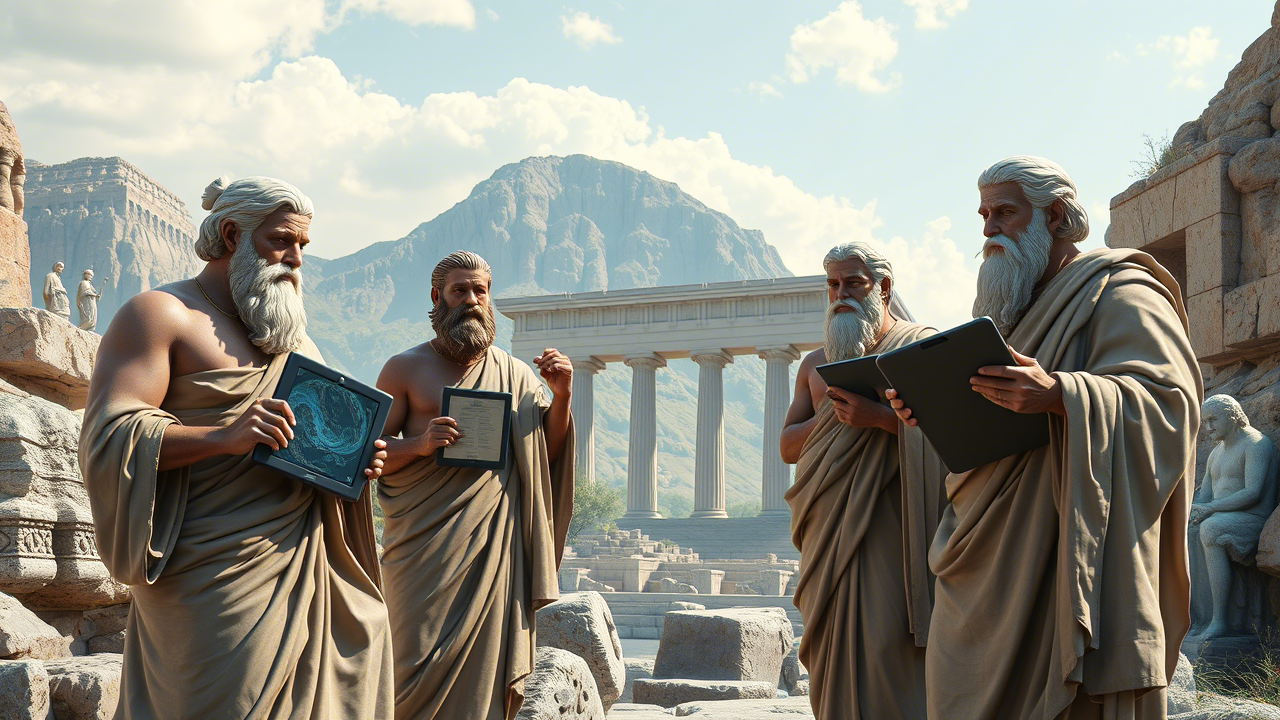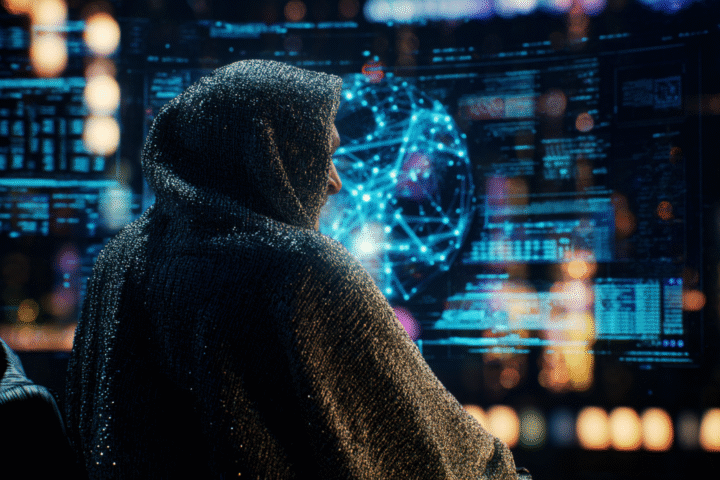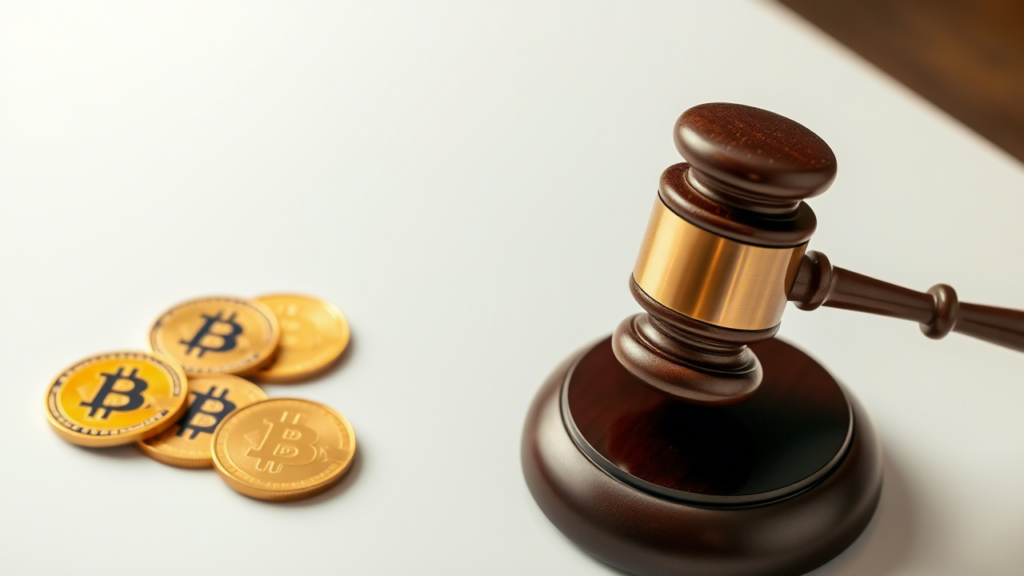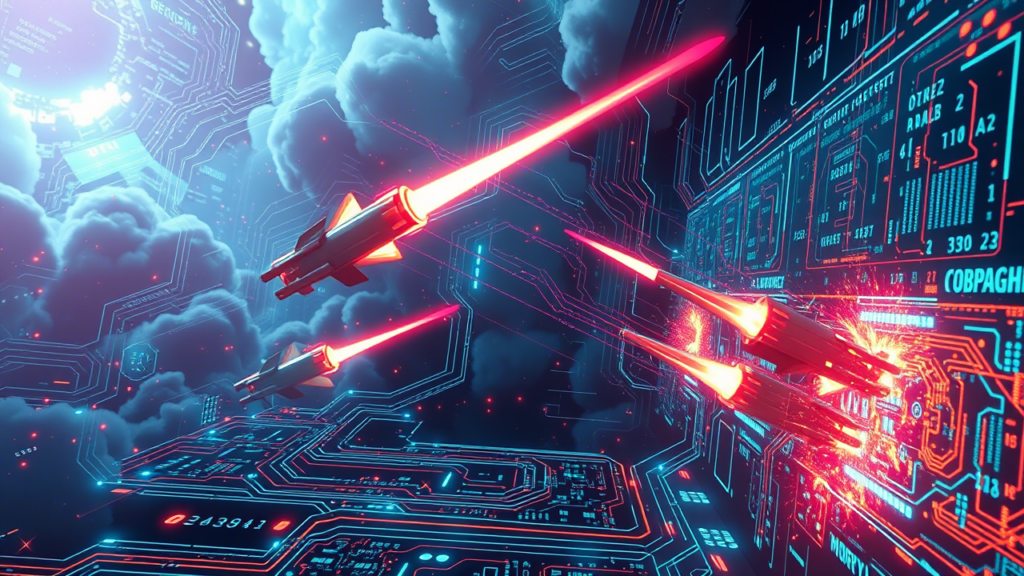You’ve probably heard the word decentralization thrown around like confetti at a crypto party — but guess what? It’s way more than just a trendy tech term. At its heart, decentralization is a big idea with deep roots in philosophy, politics, and how people organize themselves. It’s about who holds power, who gets to make decisions, and how trust gets built without relying on a single “boss” or middleman.
Understanding the philosophy behind decentralization is super important—not just if you’re into blockchain or crypto, but because it’s changing how communities, businesses, and even governments work. This idea challenges old-school ways of doing things and opens doors to new, fairer systems.
In this article, we’ll take a fun trip through history to see where these ideas came from, break down the core principles that make decentralization tick, and explore how these concepts are shaping our modern world. Ready? Let’s dive in!
What Is Decentralization?
Alright, let’s break it down: decentralization is basically about spreading out power instead of putting it all in one place. Imagine you have a big pizza. In a centralized system, one person holds the whole pizza and decides who gets the slices. But in a decentralized system, the pizza gets shared around, and everyone gets to grab their own slice (or maybe even decide together how to split it).
In the tech world, decentralization means there’s no single boss controlling everything. Instead, lots of people share control and responsibility. Take blockchain for example—the backbone tech behind cryptocurrencies like Bitcoin and Ethereum. Instead of one bank or company running the show, a whole network of computers works together to verify transactions, making it harder for any single party to cheat or control the system.
Another cool example is DAOs, or Decentralized Autonomous Organizations. Think of DAOs as clubs or companies run by rules encoded in software, where members vote on decisions—no CEOs or bosses needed. It’s like a digital democracy!
Why does this matter? Because decentralization flips the traditional power game. Instead of power being concentrated in the hands of a few, it’s spread out, giving more people a say and reducing the chance of corruption or failure. That’s why decentralization isn’t just a fancy tech term—it’s a new way of thinking about trust, control, and cooperation.
Historical and Philosophical Roots
So, decentralization isn’t just a flashy new idea cooked up for crypto fans—it actually has some serious history behind it. Way back in ancient times, thinkers were already wrestling with how to spread power around so no one person or group could run the whole show.
Take ancient Greece, for example. The birthplace of democracy wasn’t about one king calling all the shots. Instead, citizens gathered to debate and decide on laws together—a very early form of distributing power. This idea of shared decision-making planted the seeds for decentralization.
Fast forward to the Enlightenment—a period when philosophers like John Locke and Montesquieu started talking about autonomy (basically, freedom to govern yourself) and checks and balances (making sure no branch of government gets too powerful). These thinkers argued that power should be split among different groups or levels, so each keeps the others honest. Sounds a lot like the decentralized systems we talk about today, right?
These philosophical ideas shaped how many modern governments work. Think of the U.S. government with its executive, legislative, and judicial branches—all designed to keep each other in check. It’s decentralization in action, just on a political stage.
So, before decentralization became a tech buzzword, it was already a big idea about how people should share power fairly, keep each other accountable, and avoid the dangers of one group running everything unchecked.
Core Philosophical Principles Behind Decentralization
Now that we’ve seen where decentralization comes from, let’s unpack some of the big ideas that make it tick. At its core, decentralization is about more than just tech — it’s about values and principles that shape how we live and work together.
Related: Crypto Titans Bunker Down Now: Vitalik’s Austerity Vow, Binance $1B Bitcoin Shield
Autonomy and Individual Freedom
One of the biggest reasons decentralization matters is that it puts power back into your hands. Instead of relying on a single boss or company to call the shots, decentralization empowers individuals to make their own choices and control their own assets. It’s like having the keys to your own car rather than borrowing someone else’s. This respect for autonomy is a huge part of why decentralization has such a strong philosophical appeal.
Trust and Transparency
Remember the old days when you had to trust a bank or government to keep your money safe, with little way to check if they were playing fair? Decentralized systems shake things up by making everything open and transparent. When the rules and transactions are out in the open—think blockchain’s public ledger—it’s a lot harder for shady behavior to hide. This shift from secretive control to clear, verifiable trust is a game changer.
Resilience and Redundancy
Ever heard the saying, “Don’t put all your eggs in one basket”? Decentralization follows that wisdom. By spreading control and data across many independent players, decentralized systems are tougher and harder to break. If one part fails or gets attacked, the rest keep running smoothly. It’s like a team effort where everyone has a backup plan.
Collective Decision-Making
Finally, decentralization champions shared governance. Instead of one person ruling the roost, decisions are made collectively—whether it’s through voting in a DAO or community discussions. This sounds great in theory, but it comes with challenges too: how do you get everyone’s voice heard? How do you make choices quickly without chaos? Navigating these questions is part of the ongoing adventure of decentralization.
Decentralization Beyond Technology
Decentralization isn’t just a tech thing—it’s a powerful way people organize themselves in many parts of life. Let’s check out how it shows up beyond blockchain and gadgets.
Community and Social Movements
- Community Cooperatives: Groups where members jointly own and run businesses or services. Everyone has a say, profits are shared, and no single person rules the show.
- Grassroots Movements: Local or social causes driven by people working together from the bottom up, rather than relying on a central leader. These movements thrive on decentralized decision-making and collective action.
- Peer-to-Peer Networks: Systems where individuals connect directly without middlemen—for example, neighborhood tool-sharing groups or local ride-sharing clubs.
Decentralization in Economics and Finance
- Credit Unions: Member-owned financial institutions that focus on serving their community’s needs rather than maximizing profits for shareholders.
- Local Currencies: Special money used within a community to encourage spending locally and keep wealth circulating close to home.
- These models put control and benefits into the hands of people, not big corporations or banks.
Political Decentralization
- Federalism: Power split between national and regional governments (like states or provinces), allowing local control on many issues.
- Local Governments: Cities and towns managing their own services, budgets, and policies, closer to the people affected by those decisions.
- Participatory Democracy: Systems where citizens don’t just vote but actively participate in governance—through community meetings, referendums, or public councils.
Decentralization, as you can see, is a flexible idea that works well whether it’s about technology, money, or governance. It’s all about spreading power out, sharing control, and letting more voices join the conversation.
Why Philosophy Matters for Tech Development
If you think decentralization is just about coding clever tech, think again! Understanding the philosophy behind it actually helps build better, fairer systems that truly live up to the promise of shared power.
Guiding Better Tech Design
When developers keep decentralization’s core values in mind—like autonomy, trust, and collective decision-making—they’re more likely to create systems that avoid sneaky shortcuts. This means building networks that are genuinely open, transparent, and put users in control instead of just slapping a “decentralized” label on a centralized product (more on that sneaky trick soon).
Avoiding Pitfalls: Centralization Creep
Here’s where things get tricky. Sometimes, tech that claims to be decentralized ends up concentrating power in a few hands anyway. This is called centralization creep—when a handful of big players or developers quietly grab control, turning a “decentralized” system into just another bossy hierarchy. Philosophy reminds us to watch out for this and keep systems honest.
Ethics of Decentralization
Decentralization isn’t just a tech challenge—it’s a moral one. Real decentralized systems should be:
- Inclusive: Everyone should have a chance to join and participate, not just the tech-savvy or wealthy.
- Accessible: Tools need to be user-friendly, so people aren’t left out because the tech is too complicated.
- Responsible: Communities need to think about how their systems affect society, protecting users and promoting fairness.
In short, philosophy keeps decentralization grounded in values that matter—helping tech serve people, not just profits or power.
The Future of Decentralization
So, where’s all this heading? If decentralization keeps gaining traction—not just in tech but in how we live, work, and organize—it could reshape the world in seriously big ways. Think fewer gatekeepers, more collective power, and systems that work with people instead of over them.
Related: Privacy Confirmed: Advanced FHE Coming To All Shiba Inu Tokens
Big Possibilities on the Horizon
If decentralization goes mainstream, we could see:
- Community-owned platforms instead of ad-driven tech giants.
- People-powered economies, where decisions are made locally, transparently, and collectively.
- A rethinking of institutions, from banking to education, with peer-to-peer solutions that prioritize access and fairness.
This shift could nudge society toward more trust, collaboration, and autonomy—basically the opposite of everything that makes dealing with centralized systems so frustrating.
The Roadblocks Ahead
Of course, it’s not all smooth sailing. Real-world decentralization still has some major puzzles to solve:
- Scalability: How do we build decentralized systems that work for millions (or billions) without falling apart?
- Governance: Who makes decisions in a decentralized system, and how do we prevent bad actors from gaming the rules?
- Legal frameworks: What happens when decentralized platforms bump into national laws or global regulations?
These aren’t minor issues—they’re make-or-break challenges for the future of decentralization.
Still Unanswered: The Deep Questions
Here’s where things get philosophical again. Even as tech evolves, we’re still wrestling with big questions like:
- How do we balance individual freedom with community accountability?
- Can truly decentralized systems protect vulnerable users without slipping into paternalism?
- What’s the ethical responsibility of creators and users in decentralized ecosystems?
The truth is, decentralization isn’t just a trend. It’s a living experiment in how we might organize a better future—and that means thinking just as hard about why we decentralize as we do about how.
More Than Code—A Way of Thinking
By now, it’s clear: decentralization isn’t just a tech trend—it’s a whole way of thinking about power, freedom, and how we relate to one another. Yes, it’s the driving force behind things like blockchain and DAOs, but its roots run way deeper than code. It’s about shifting control away from a select few and toward communities, individuals, and systems that value transparency, participation, and fairness.
So here’s the real challenge: next time you use a “decentralized” tool, ask yourself—is it really living up to the values it claims to represent? Is it transparent? Inclusive? Accountable? Or is it just wearing the label?
Because decentralization isn’t just a structure—it’s a mindset. A philosophical stance. A commitment to building tools, communities, and futures that reflect what matters most: autonomy, trust, resilience, and shared responsibility.
The tech might be new. But the ideas? They’ve been stirring revolutions for centuries.
And now… it’s your move.












